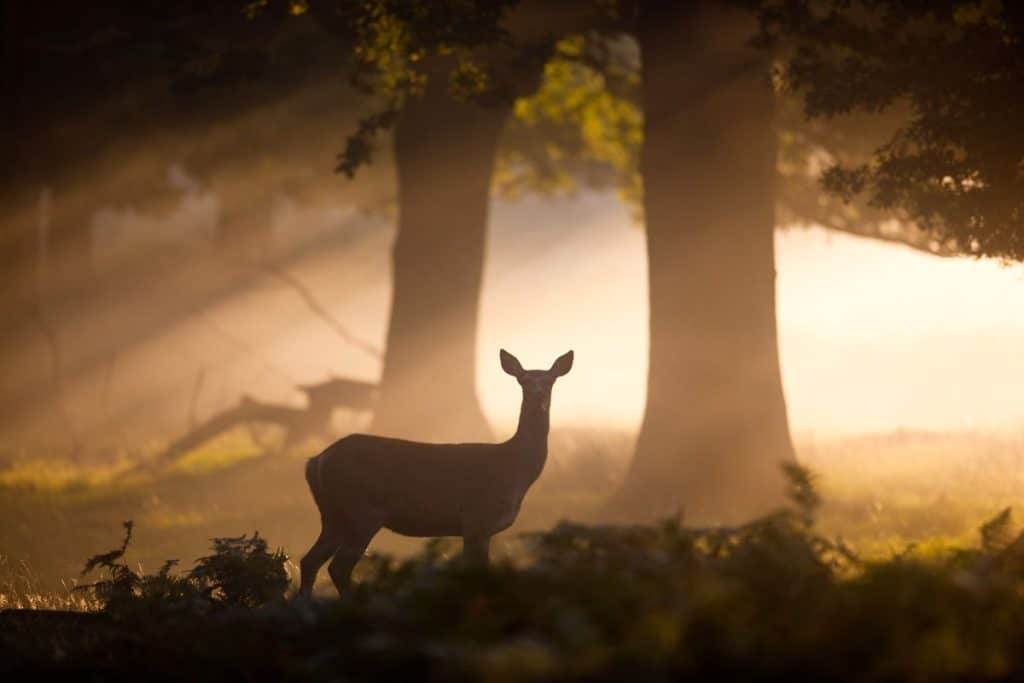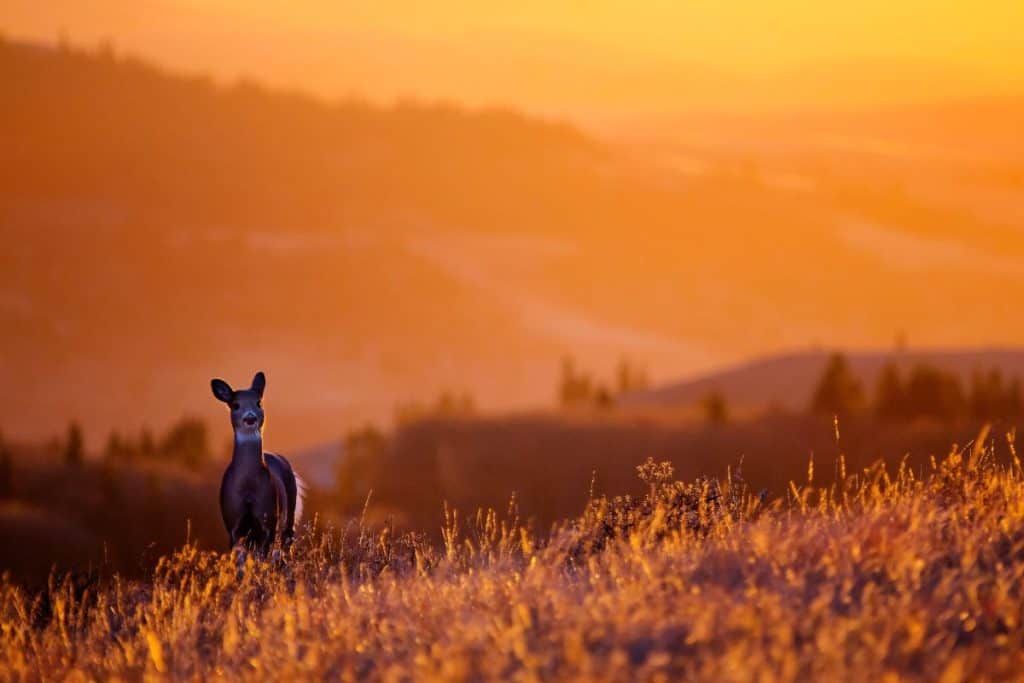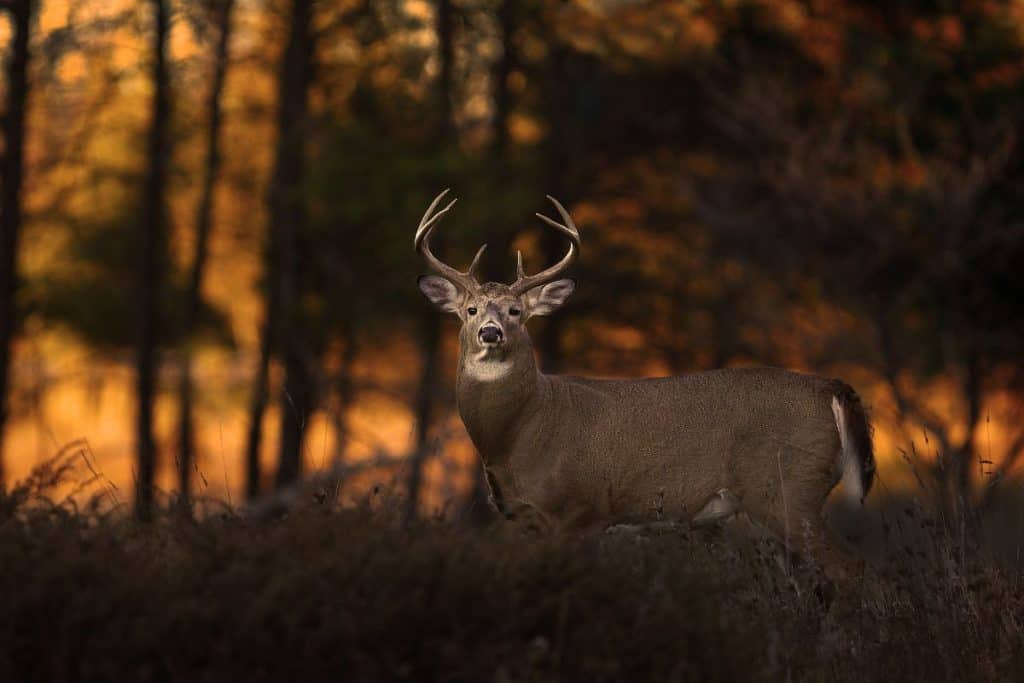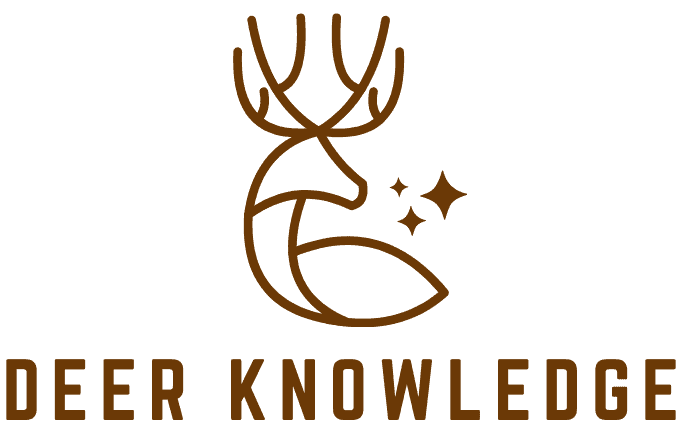Deer are one of the most popular animals in North America. Though they are often associated with forested areas, deer can be found in a variety of habitats, including meadows, grasslands, and even mountains.
Nature enthusiasts and hunters alike have often observed that, no matter their specific habitat, deer tend to be more active at night, leading many to wonder: are deer nocturnal?
The answer might just surprise you.
So, Are Deer Nocturnal?
No, deer are not nocturnal. They are crepuscular – meaning they are more active at twilight and dusk. So while deer are often active just after dark, they are not nocturnal, as they tend to sleep during the night too.
Despite deer not being nocturnal animals, they tend to be more active in the late evening, in the deep twilight hours. There are a number of reasons for this behavior.
For one, deer are prey animals, meaning they are constantly at risk of being hunted by predators. To avoid becoming someone else’s dinner, deer have evolved to be most active when their predators are not. This means that deer are more likely to be out and about foraging during the hours of dusk and dawn – when predators like humans are less likely to be hunting.
Deer are also more active during the evenings and early mornings because it is cooler, and they can avoid the heat of the day. This is especially important for deer living in areas with hot climates such as Texas or Arizona.

Lastly, deer have poor vision, usually around 20/100. They are at their most vulnerable when foraging, and grazing under cover of twilight levels the playing field to some extent regarding predators, as they can rely on their cupped and independently-mobile ears (which can rotate 180 degrees) and their keen sense of smell (nine times more powerful than humans) to detect potential threats.
Do Deer Sleep at Night?
Even though deer tend to be more active at the beginning and tail end of darkness, they also sleep during the night. They usually sleep in short stints, rather than all in one go like humans, and their sleep patterns will depend on the specific season.
In the spring and summer, when food is more plentiful, deer will often take several short naps throughout the day and night. These naps usually last around 20-40 minutes each.
In the late summer and early fall, as winter approaches, deer will start to spend more time feeding in preparation for the colder months and the mating season, when bucks and stags need their energy. Their sleep patterns will change to accommodate this, and they will take fewer naps that are longer in duration – around two-four hours each while spending more time out in exposed locations to forage.

In the winter, deer seek cover from cold winds and snow, often choosing to hunker down in warm and comfortable spots with clear lines of sight so they can see predators coming. Deer in colder climates will sleep more during the winter months to conserve energy and body heat.
Do Deer Eat at Night?
The time of day a deer eats will vary throughout the year and depend on aspects such as the season and its specific habitat. You may well have seen a deer foraging in the dying embers of twilight and think that deer are nocturnal, just waking up to feed before a night spent on the move avoiding predators.
However, deer are more likely to be active and feed during the early mornings and late evenings than at night. This is mainly due to the fact that nights are when some predators are most active, meaning that deer are at a higher risk of being hunted. Opportunistic nocturnal forest hunters, such as wolves and foxes, often target deer fawns specifically, so it is essential for does to keep their young close and only venture out to feed when necessary.
Deer will only eat at night if they are hungry, provided plentiful food is available with a perceived low threat of predators in the area.

If there is an over-abundance of food in an area, deer may well be active and feed at all hours of the day and night since they are opportunistic herbivores. For example, this is often the case in agricultural areas, where deer often damage crops by foraging in fields under cover of darkness.
But, as mentioned, deer tend to avoid exposing themselves during broad daylight or in the depths of the night if they can avoid it since these are the periods when predators are much more active and hold the upper hand.
Recap: Are Deer Nocturnal or Not?
Overall, deer tend to be most active at dawn and dusk and are considered crepuscular in their behavior rather than nocturnal. That’s not to say deer aren’t ever active at night. They may forage during hours of darkness if “safe” food is abundant (free from perceived threats) or if they feel they need to take on more calories to prepare for the cold winter months ahead.
For that reason, deer are more likely to be seen out and about at night during fall as they bulk up in preparation for winter. But they will still be most active during the hours of dawn and dusk.
The bottom line is that deer are not nocturnal animals, but their behavior does change somewhat throughout the year in response to the changing seasons, their need to find food, and avoid predators.
So, if you’re out for an early-morning or late-evening walk in the woods and see a deer, it’s probably not because it’s up all night – chances are it’s just taking advantage of the cooler temperatures and lack of predators to feed.

